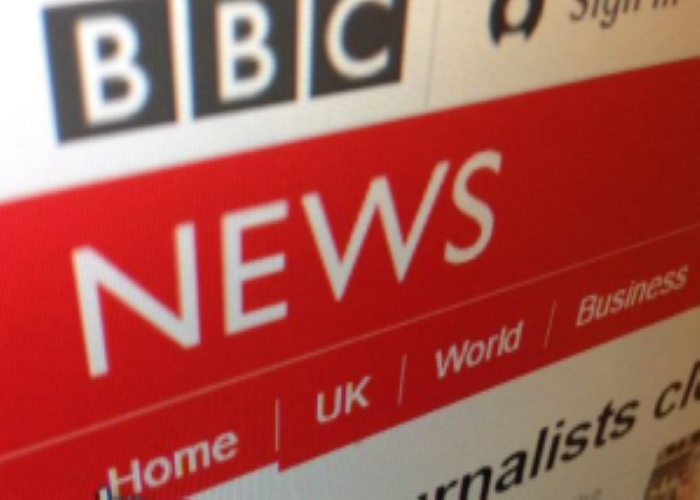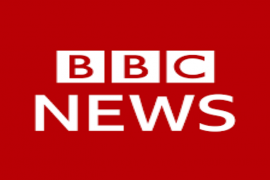On the evening of September 17th, a few hours after the explosions of Hizballah pagers in Lebanon and Syria, the BBC News website launched a live page covering that story.
That live page – edited by Sean Seddon – remained active until the evening of September 20th and some of its entries include problematic use of language, significant omissions and the adoption and promotion of Hizballah terminology and messaging.
As regular readers will be aware, BBC audiences are regularly told that ‘settlements’ are “illegal under international law”, in line with instruction in the BBC’s style guide. On the morning of September 20th visitors to the BBC News website’s live page found the following entry:
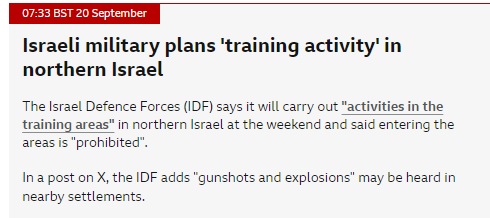
The linked Tweet in that entry is in Hebrew and therefore useless to the majority of readers. That IDF announcement uses the word ‘yishuvim’ which can be translated as communities, places of permanent residence – such as towns and villages – or settlements. The BBC (and, perhaps not coincidentally, Google Translate) chose the latter option to refer to civilian communities near training areas in unspecified regions of northern Israel, despite the fact that the corporation has for years employed a policy of telling its audiences that settlements are “illegal”.
Another entry on September 20th tells BBC audiences that:
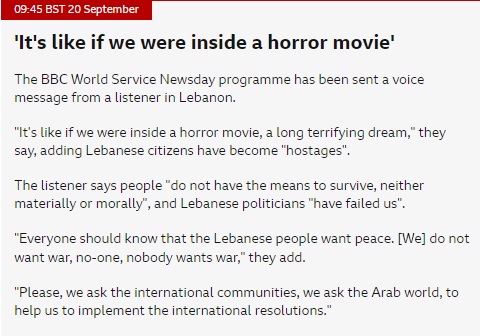
BBC audiences are not told that “the international resolutions” include UNSC resolution 1701, according to which Hizballah should be disarmed and nowhere near the border with Israel.
Later the same day, the following entry appeared on the BBC’s live page:
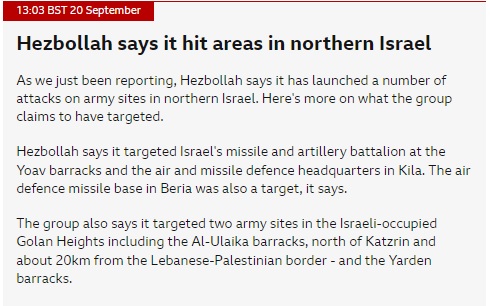
The IDF does not have a base called “Al-Ulaika barracks” in the Golan Heights but the BBC clearly did not bother to fact-check that Hizballah claim before promoting it worldwide. As we see, the BBC refers to “the Lebanese-Palestinian border” despite the fact that no such border (and, as the BBC’s style guide clarifies, no Palestinian state) exists. In other words, the BBC adopted – and uncritically promoted to its audiences – the Hizballah narrative according to which all of Israel is ‘Palestine’. It is hence unsurprising to find that the BBC had nothing to tell its audiences about reports concerning the outcome of Hizballah’s attack on Kela (rather than “Kila”):
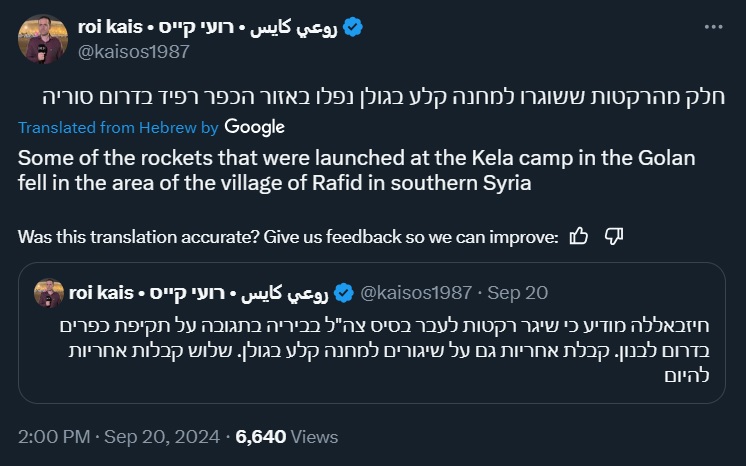
Another notable entry on that live page came after a strike on terrorists meeting in Beirut on September 20th:
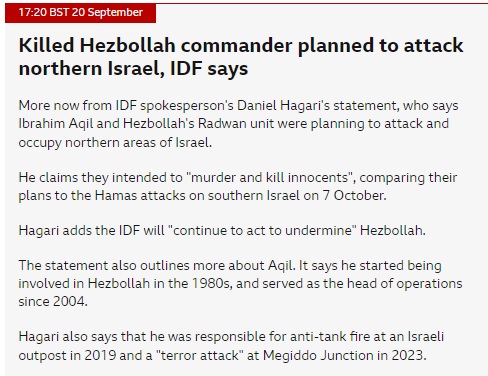
The superfluous punctuation around the phrase terror attack would clearly hinder readers’ understanding of the fact that – as the BBC knows – in March 2023 an Arab-Israeli civilian was severely wounded in a roadside bombing attack on Route 65, near Megiddo Junction. The armed terrorist who perpetrated that attack was caught and killed as he tried to return to Lebanon. Nevertheless, the BBC apparently thought it appropriate to qualify the nature of an attack involving infiltration into a foreign country to place a roadside bomb targeting civilian motorists.
That editorial choice of course means that the BBC can avoid the topic of Hizballah’s provocations and escalations prior to October 2023 and thus frame its current actions solely as ‘support for Gaza’.
Related Articles:

